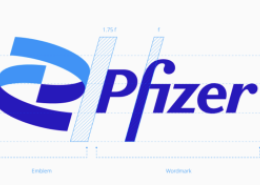LYRICA® (pregabalin) Phase 3 Trial in Pediatric Epilepsy Meets Primary Endpoint
“At Pfizer we believe it is important to continue to study our medicines in relevant populations”
Pfizer Inc. (NYSE:PFE) announced today positive top-line results of a study that evaluated the use of LYRICA® (pregabalin) Capsules CV and Oral Solution CV as adjunctive therapy for pediatric epilepsy patients four to 16 years of age with partial onset seizures. Results showed that adjunctive treatment with LYRICA 10 mg/kg/day resulted in a statistically significant reduction in seizure frequency versus placebo, the primary efficacy endpoint. Treatment with LYRICA 2.5 mg/kg/day resulted in a numerical reduction in seizure frequency, which was not statistically significant. LYRICA is not approved as adjunctive therapy for pediatric epilepsy patients with partial onset seizures. “At Pfizer we believe it is important to continue to study our medicines in relevant populations,” said Rory O’Connor, MD, Chief Medical Officer, Internal Medicine, Pfizer Inc. “Epilepsy remains a common and debilitating condition worldwide, and these results make a substantial contribution to the body of evidence for LYRICA in the pediatric population.”
The LYRICA Pediatric Epilepsy Program is composed of a total of six studies in patients with epilepsy evaluating LYRICA as adjunctive therapy, three of which have been completed and three are actively enrolling. For more information, visit www.clinicaltrials.gov.
About the Study
This Phase 3 study was a 12-week double-blind, placebo-controlled, randomized, parallel group, multi-center study including two fixed LYRICA doses. The study was conducted at 76 sites in 18 countries with 295 subjects four to 16 years of age. Subjects were randomized to placebo, LYRICA 2.5 mg/kg/day or LYRICA 10 mg/kg/day.
The safety profile observed in this study was consistent with that known for LYRICA in adults. No unexpected or new safety findings were reported in the pediatric patients with POS in this study. The most common adverse events with LYRICA 10 mg/kg/day in this study were somnolence, weight increase, increased appetite and pyrexia. The most common adverse events with LYRICA 2.5 mg/kg/day were somnolence, upper respiratory tract infection, nasopharyngitis and cough.
Complete study results are expected to be submitted for presentation at an upcoming scientific congress and for publication in a peer-reviewed medical journal.
About Epilepsy
Epilepsy is a chronic disorder characterized by recurrent, unprovoked seizures and occurs in both adults and children. Sixty-five million people worldwide have epilepsy. One in 26 individuals in the U.S. will develop epilepsy at some point in their lifetime. About three million people in the U.S. are living with epilepsy, of which approximately 10 percent or 300,000 are pediatric patients. Partial onset seizures are the most common seizure type.
About LYRICA
LYRICA® is currently approved for various indications in more than 130 countries and regions globally.
In the U.S., LYRICA is indicated to treat fibromyalgia, diabetic nerve pain, spinal cord injury nerve pain and pain after shingles in adults. LYRICA is also indicated to treat partial onset seizures in adults with epilepsy who take one or more drugs for seizures.
Please click here for the full prescribing information and Medication Guide for LYRICA or visit http://www.lyrica.com/.
Important Safety Information
LYRICA is not for everyone. LYRICA may cause serious, even life threatening, allergic reactions. Stop taking LYRICA and call your doctor right away if you have any signs of a serious allergic reaction. Some signs are swelling of your face, mouth, lips, gums, tongue, throat or neck or if you have any trouble breathing, or have a rash, hives or blisters.
Drugs used to treat seizures increase the risk of suicidal thoughts or behavior. LYRICA may cause suicidal thoughts or actions in a very small number of people, about 1 in 500. Patients, family members or caregivers should call the doctor right away if they notice suicidal thoughts or actions, thoughts of self harm, or any unusual changes in mood or behavior. These changes may include new or worsening depression, anxiety, restlessness, trouble sleeping, panic attacks, anger, irritability, agitation, aggression, dangerous impulses or violence, or extreme increases in activity or talking. If you have suicidal thoughts or actions, do not stop LYRICA without first talking to your doctor.
LYRICA may cause swelling of your hands, legs and feet, which can be serious for people with heart problems. LYRICA may cause dizziness and sleepiness. You should not drive or work with machines until you know how LYRICA affects you. Also, tell your doctor right away about muscle pain or problems along with feeling sick and feverish, or any changes in your eyesight including blurry vision or if you have any kidney problems or get dialysis.
Some of the most common side effects of LYRICA are dizziness, blurry vision, weight gain, sleepiness, trouble concentrating, swelling of your hands and feet, dry mouth, and feeling “high.” If you have diabetes, tell your doctor about any skin sores.
You may have a higher chance for swelling and hives if you are also taking angiotensin-converting enzyme (ACE) inhibitors so tell your doctor if you are taking these medications. You may have a higher chance of swelling of your hands or feet or gaining weight if you are also taking certain diabetes medicines. Do not drink alcohol while on LYRICA. You may have a higher chance for dizziness and sleepiness if you take LYRICA with alcohol, narcotic pain medicines, or medicines for anxiety.
Before you start LYRICA, tell your doctor if you are planning to father a child, or if you are pregnant, or plan to become pregnant. Breastfeeding is not recommended while taking LYRICA. If you have had a drug or alcohol problem, you may be more likely to misuse LYRICA.
In studies, a specific type of blood vessel tumor was seen in mice, but not in rats. The meaning of these findings in humans is not known.
Do not stop taking LYRICA without talking to your doctor. If you stop suddenly you may have headaches, nausea, diarrhea, trouble sleeping, increased sweating, or you may feel anxious. If you have epilepsy, you may have seizures more often.
Pfizer Inc.: Working together for a healthier world®
At Pfizer, we apply science and our global resources to bring therapies to people that extend and significantly improve their lives. We strive to set the standard for quality, safety and value in the discovery, development and manufacture of health care products. Our global portfolio includes medicines and vaccines as well as many of the world's best-known consumer health care products. Every day, Pfizer colleagues work across developed and emerging markets to advance wellness, prevention, treatments and cures that challenge the most feared diseases of our time. Consistent with our responsibility as one of the world's premier innovative biopharmaceutical companies, we collaborate with health care providers, governments and local communities to support and expand access to reliable, affordable health care around the world. For more than 150 years, Pfizer has worked to make a difference for all who rely on us. To learn more, please visit us at www.pfizer.com. In addition, to learn more, follow us on Twitter at @Pfizer and @Pfizer_News, LinkedIn, YouTube and like us on Facebook at Facebook.com/Pfizer.
DISCLOSURE NOTICE: The information contained in this release is as of December 1, 2016. Pfizer assumes no obligation to update forward-looking statements contained in this release as the result of new information or future events or developments.This release contains forward-looking information about LYRICA, including its potential benefits, that involves substantial risks and uncertainties that could cause actual results to differ materially from those expressed or implied by such statements. Risks and uncertainties include, among other things, the uncertainties inherent in research and development, including, without limitation, the ability to meet anticipated trial commencement and completion dates and regulatory submission dates, as well as the possibility of unfavorable clinical trial results, including unfavorable new clinical data and additional analyses of existing clinical data; whether and when any applications for any potential new indication for LYRICA may be filed with regulatory authorities in any jurisdictions; whether and when regulatory authorities in any jurisdictions may approve such applications and/or any other applications that are pending or may be filed for LYRICA, which will depend on the assessment by such regulatory authorities of the benefit-risk profile suggested by the totality of the efficacy and safety information submitted; decisions by regulatory authorities regarding labeling and other matters that could affect the availability or commercial potential of LYRICA; and competitive developments.
A further description of risks and uncertainties can be found in Pfizer’s Annual Report on Form 10-K for the fiscal year ended December 31, 2015 and in its subsequent reports on Form 10-Q, including in the sections thereof captioned “Risk Factors” and “Forward-Looking Information and Factors That May Affect Future Results”, as well as in its subsequent reports on Form 8-K, all of which are filed with the U.S. Securities and Exchange Commission and available at www.sec.gov and www.pfizer.com.
Media
Steven Danehy, (212) 733-1538
Steven.Danehy@Pfizer.com
or
Investor
Ryan Crowe, (212) 733-8160
Ryan.Crowe@Pfizer.com








